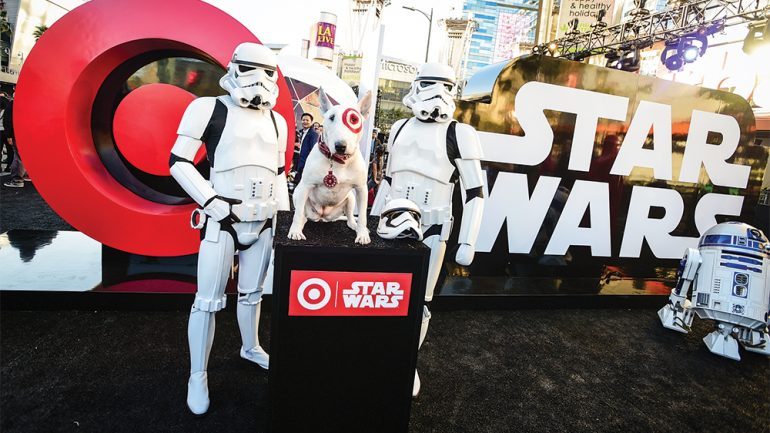In the New Retail World Order, Licensing Partners Become Competitors
By Robert Marich
LOS ANGELES (Variety.com) – Despite the demise of Toys R Us, which rocked sales for Hollywood’s film and TV merchandise, the death of retail stores is exaggerated.
Online commerce only accounts for around 10% of U.S. retail sales, and such brick-and-mortar mass-market retailers as Walmart and Target are still corralling two-thirds of sales in many product categories. But the pursuit of direct-to-consumer sales online by all players in the merchandise ecosystem has unleashed multi-directional competition, and that contributed to Toys R Us shuttering its stores in bankruptcy earlier this year.
“It used to be sacrosanct that studios and television networks not compete with retailers and manufacturers,” says Ira Mayer, a New York-based consultant and co-director of the Institute of Branding & Licensing at Long Island U.-Post. “Now the studios and TV networks sell direct to consumers, and the manufacturers sell direct to consumers, competing with their retailer customers. Everybody is competing with everybody. That’s where the real stress in retail is today.”
This “new retail world order” will be the subject of a panel at Nickelodeon’s Partner Summit, moderated by Variety executive editor Debra Birnbaum, on Nov. 13 at Paramount Studios.
As competition comes from every angle, the mantra from licensed-merchandise executives is: They want to stand out by delivering to consumers a uniform purchasing experience across all platforms and, if possible, inject an emotional component to products. The emotional experience is best delivered in brick-and-mortar stores where consumers can be presented with big video screens, costumed characters prowling the aisles and other razzle-dazzle.
“You have to give [shoppers] an experience and consistency in our storytelling,” says Pam Lifford, president of Warner Bros. global brands and experiences. “It’s very difficult in the fragmented media environment. There is no one answer to that, other than you have to be everywhere, 24/7.”
How to standardize experience across diverse retail platforms? Online retailers selectively let Hollywood content owners and product manufacturers plant landing pages or virtual stores in primo slots on their commerce websites.
“Many retailers are asking us to curate our brand experience in virtual storefronts on their websites,” says Dion Vlachos, executive VP, U.S. retail sales and global publishing, Viacom Consumer Products. Such virtual stores do more than sell with a click; they provide backstory on products to draw consumers deeper into franchises and details on in-store promotions. They also weave in merchandise for sale in a subtle way.
Within the growth of online commerce, says Ken Potrock, Disney president, consumer products commercialization, Disney parks, experiences and consumer products, “the biggest lift in traffic and conversion for shopDisney is coming from mobile.”
“Everybody is competing with everybody. That’s where the real stress in retail is today.”
Ira Mayer, consultant
The brick-and-mortar stores are where the potential is broader for injecting some razzmatazz with consumers buying licensed merchandise. “Some of our retail partners are really focused on content, while others want to leverage local, in-store events or exclusive product,” says Potrock. “It really depends on what each retailer is looking to accomplish.”
Retailer Target creates video content to promote Hollywood brands in 60- and 90-minute videos that are mined for source material to create a halo effect across online and physical stores.
“We’ll bring that to social media, Instagram and Facebook in six-second video increments,” says William White, senior VP marketing at Target. “That total experience seems cohesive when our guests later walk into one of our stores.”
Hollywood merchandise pros say the vitality of physical stores is also evident at dollar stores, which used to simply blow out obsolete Hollywood merchandise — such as unsold products from flops — but increasingly have received products for current Hollywood brands.
“The bulk of our business today is definitely done in bricks and mortar, but we take an omni-channel approach to retail,” says Carolann Dunn, vice president of consumer products for Discovery. “We want to have our products our superfans are.”
Tipsheet
What: Nickelodeon’s Partner Summit
When: 4 p.m. Nov. 13
Where: Paramount Studios, Hollywood

